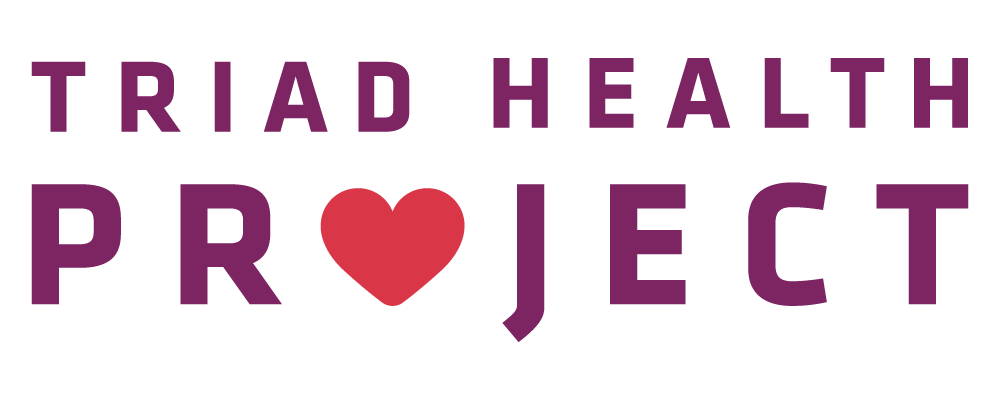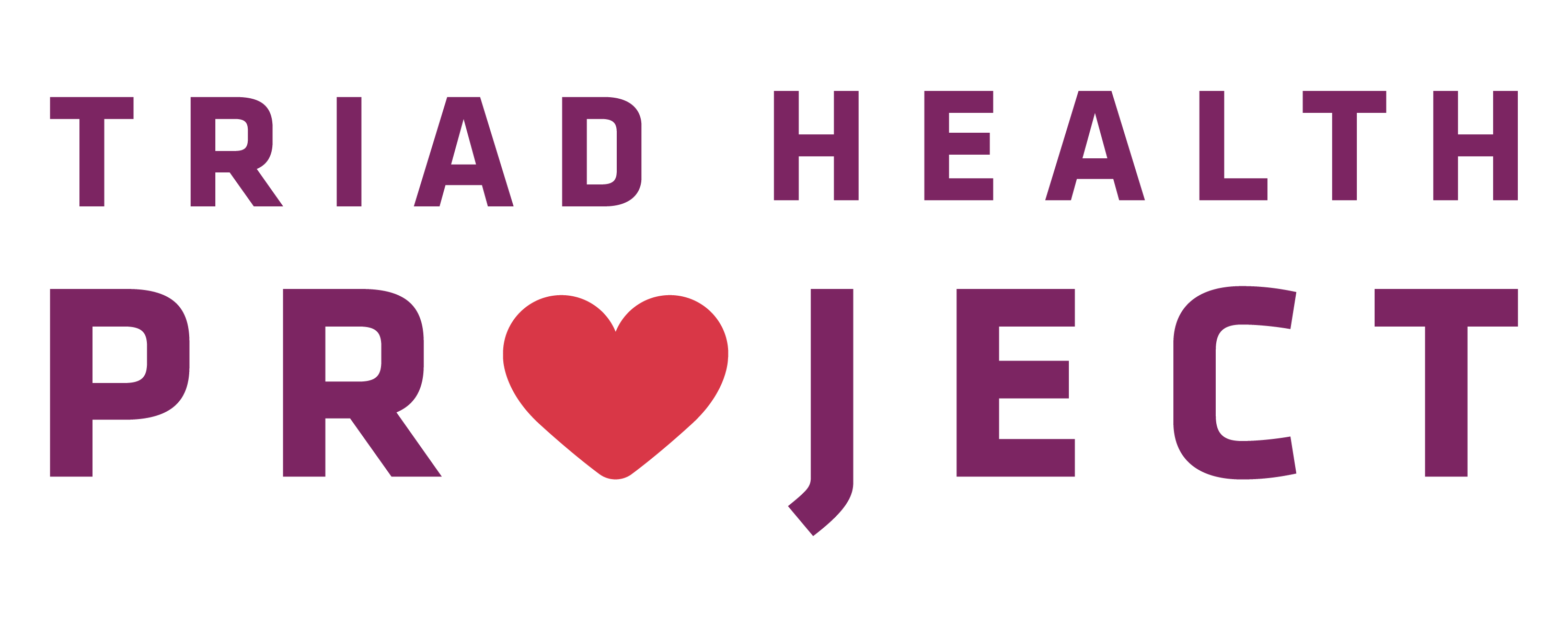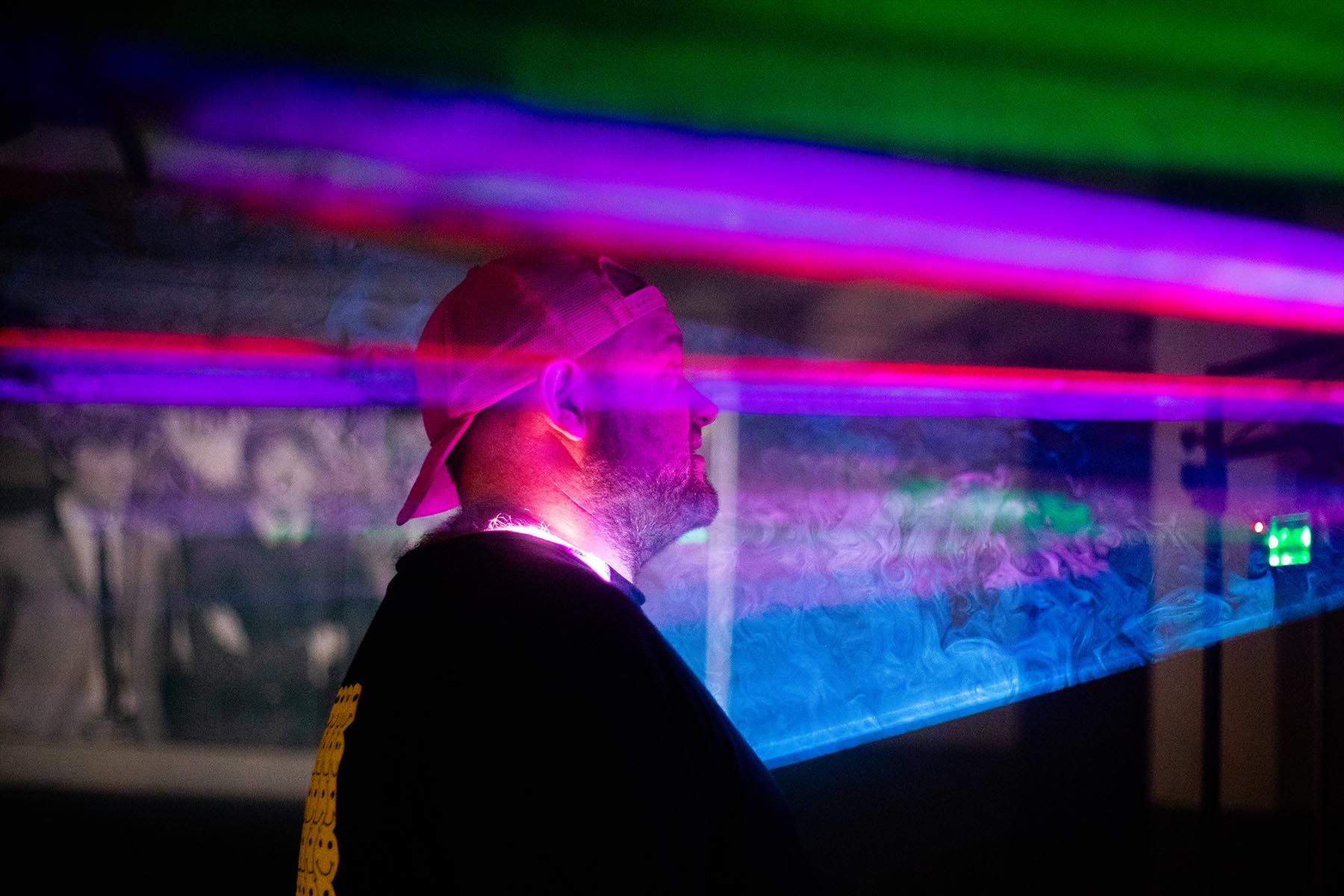Stop the STIgma, Not the Music
A Triad-based DJ shares about how building community can be a way to stop the STIgma experienced by community members living with HIV.
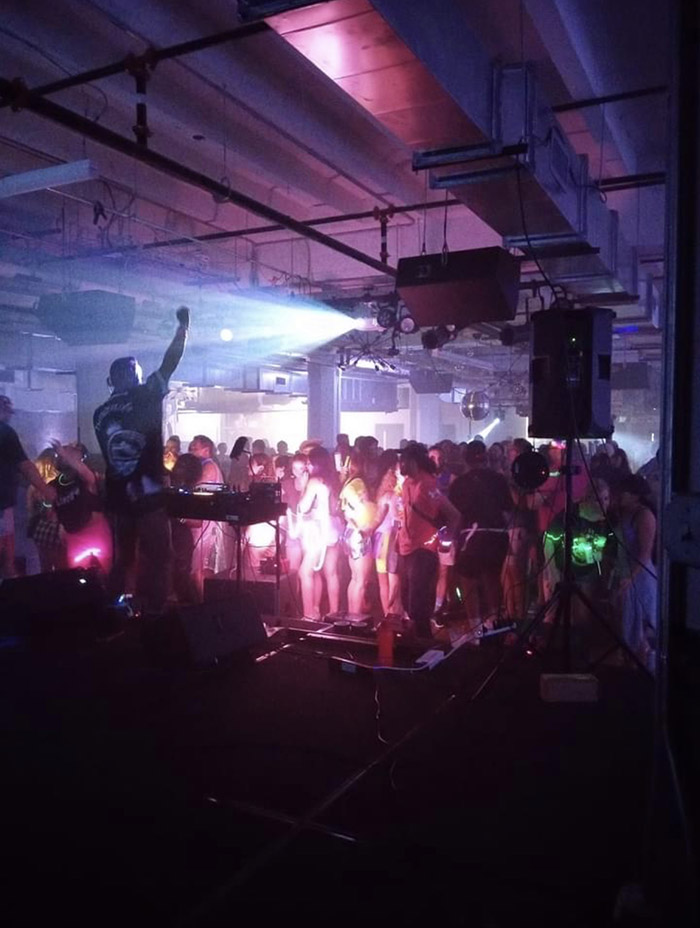
Music and community go hand-in-hand. No matter the genre, it allows us to explore our own modes of self-expression and find ways to navigate some of the most beautiful — and hard — areas of our lives.
This is especially true for David Bower, a Triad-based DJ who’s been spinning records and changing lives since his first Craigslist turntable at age 17. As a queer man once in a serious relationship with someone who was HIV-positive, Bower knows firsthand how real and hurtful LGBTQ stigmas can be.
He also knows that when we push past those challenges, we can find celebrate things that truly unite us all — like the healing, beautiful power of music.
Bower recently sat down with THP to discuss his musical journey, his personal experiences, and the lessons he’s learned through it all.
I’m a huge music fan, and you’re an inspiration to all of us. Can you tell us what inspired you to become a DJ?
Well, I always liked electronic music. I thought I had a good idea of what people like to hear, and how to bring people together.
When I was about 17, I was listening to a lot of electronic music. My dad was like, “Let’s see what we can find on Craigslist.” I found this guy who was getting rid of his old turntables, vinyl collection, and an old CDJ rack, like the ones they used to put in DJ booths.
We got a $50 mixer from Guitar Center, and I just started to learn. I grew up with it while learning about it. Then, I think it was Napster—a peer-to-peer file-sharing network that launched in 1999—that allowed me to access a lot more music than I probably should have.
I played a lot of shows growing up and started a little band with a friend of mine. We did some DJ shows together, and it was always very much centered around community development.
We started this group called the Gay Mafia back in 2007 or 2008 with a couple of friends of mine. We didn’t like what Haven, the queer organization on campus at Cornell, was doing. So, we decided to start our own thing.
We came to a point where we couldn’t find a venue because we had too many people showing up. We had at least 800 to 900 people who would come to our parties. That grew into something bigger. I was doing promotions all over the state.
It was really great. It was always about community. It was always about the music, and the vibe, and the feeling. I would print flyers out at the library and post them everywhere on campus. Tons of people would show.
In thinking about getting your start, was there a past relationship that had an impact on your sense of community?
There was. It was a stressful situation with someone I loved and was dating who happened to be HIV positive. After his diagnosis, he really turned to alcohol for comfort. It was difficult for him to go to the doctor, to keep up with his health, and to take or stay on medication. And then, there was us being serodiscordant and the stress of all that. PrEP (pre-exposure prophylaxis, a medication to prevent HIV) was just becoming a thing. He was changing medications all the time, my own lack of knowledge regarding serodiscordancy, and the alcohol were all difficult.
Can you explain the term serodiscordant?
Sure. Serodiscordant was always the word that I used to describe the relationship. That means one partner is HIV positive and one is negative and you’re in an intimate relationship.
Do you think a lot of people have challenges with that? When you were dating someone living with HIV, did you have to answer a lot of questions around it? Was it approached with a lot of stigma?
I felt that there was a lot of stigma within certain generations of people. The close group of friends we kept really skirted over status unless it needed to be talked about. I think once we got to know you we discussed our relationship and were vocal about it but kept it to ourselves unless there was an issue when it needed to be disclosed. People liked to chat with me (us) about how things were going and how to approach the situation and sometimes how I was feeling but I think we needed to talk more. Not enough talking was going on within certain groups of people.
How did work through that? How did you have that conversation? Can you share a little bit about your process?
My process was tough. As a 22-year-old, I think I didn’t understand HIV as much as I should have. I don’t regret the relationship at all. We had a wonderful relationship.
I don’t think that anybody should be afraid, or anything like that, to enter into a relationship with someone regardless of their HIV status.
I think I just didn’t understand it enough. What I heard in one ear was parents or relatives saying, “You’re gonna contract it. You’re gonna get sick.” There was a lot of that on one side of things.
Then, there was this person who I love very much and very much want to spend time with, who’s not any of that. Who’s not like that. Who’s not seedy or anything that people at that time thought about those who were HIV-positive. It was a horrible, horrible situation. Within that, I had my own nervousness, which I talked about a little bit with some people.
There was also sometimes reluctance to use a condom on his end or on my end, to show that we were truthful to each other, or to prove that we were really in the relationship. That piece was a little mental, where you were kind of like, “Yeah, I’m not afraid of you.” That was really, really tough to process for a 22-year-old who didn’t know a ton about HIV.
Can you share how things have shifted over the years? Did you feel like you were able to negotiate things a little better with advances in medication or prevention strategies?
That was a huge thing. I would go to appointments with him. I would try and learn as much as I could and just also learn about the different medications and educate myself a little bit more.
And then, it didn’t become too much of an issue toward the middle of the relationship, until he fell off the wagon a little bit and stopped taking medication. Then, it became a “You’re not taking care of yourself” type of situation.
That can happen to anybody with a medical issue. You need to be checking up with your doctor. You need to be taking care of yourself. I know there’s a serious mental health issue within the HIV-positive community. Even within the queer community, there’s a severe mental health issue.
But I saw it so startlingly. There was a mental health issue, too. Working through that was tough, but I did get to a point where I felt more comfortable being intimate. We had a good relationship, where we were more communicative about wants and needs. At the end of the day, until those last couple of years when he really did fall off the wagon in more ways than one, it was good. It really was. We learned a lot from each other.
Do you think stigma played into that tension?
I would 100% say that there were issues with the stigma, like when my parents found out, which was really tough. My mom found his medication in the medicine cabinet, got in her car, and left. She was visiting me from New York and just left. She went to the hotel and took the next plane out.
That was tough, but we weren’t in the situation that we’re in now. Her idea, when I first came out, was “You’re going to contract HIV.” So, there was some stigma there related to “gay” and “HIV” for her, and for that generation. I think they did see a lot of people who died, and there were no medications, and there wasn’t support.
So seeing that medication just blew up her world. We actually didn’t even talk for about two or three years. It was a matter of choosing my relationship over choosing my family, for a bit.
What about the gay communities? Did you feel like they provided more resources or connections?
I was in Elkin at the time, and there wasn’t a big queer community. The people who I did associate with were very accepting and it did not really matter who you were. There was a small group of tight-knit folks.
Then, I moved to Winston, and it got a little better. A couple of friends of ours moved to Winston from other places and we kind of started a little group. That was 10 years ago. It was really, really, really helpful.
There was support there. For people who came from other places, like bigger cities, there was a lot of education that was already in place there, but not where we were.
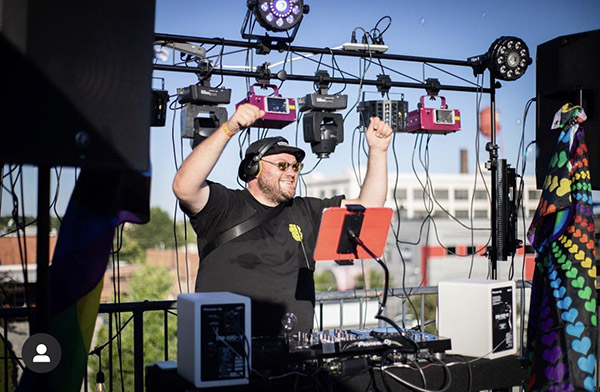
Community has become really important to you. Can you share a little bit about where you’re at today?
For a while, I had a good group of friends. I was dating my ex and we had a very tight-knit group. When that all kind of fell apart for me, I was put out of that group, and I really was upset by that, as one would be. It took a few years for me to kind of find my footing.
Then, I realized I have an ability to bring people together, to do things that some people might think are crazy. They are kind of, but I like to do that stuff. I like to invite people to my house and have a party, to get together and chat and build community that way.
That’s how we started with electronic music. We wanted to create a group of people who were supportive of one another and wanted to learn, wanted to put issues forward. That’s what I’m doing now and what I want to do.
About a year and a half ago, I really started getting back into building not just a friend group, but a group of people around me who just really understand the importance of community. It’s just grown from there.
The artistic side comes out a bit and people seem to like it. At the core of everything that I do is a desire to connect people, in whatever way possible. From our events, we’ve had people make new friends. We’ve had new relationships start. We’ve had people change and move on.
All of that is super healthy, and it’s what we want to see. We want to see that happen in our little area of the world, so I want to do anything I can to help.
Do you think that’s a way people can step up to stop stigma? By building community? By getting out and connecting to people? Are there other things that people can do?
Building community is absolutely a way to help stop stigma. One of the other big ways is continuing to talk, to be present, and to continue to talk about issues that are important and major in your community. You can’t stop talking about it. A lot of times, in my own experience, I would put it in the back of my mind and try to not worry about it for a while or try and keep it out of there for a bit. If you’re in a community that talks about these things, or you have organizations like you guys that talk about safe sex, or what its like to be in a discordant relationship, it improves our way of life.
We need everyone to be out there with their voices. Not only talking about it but dancing!
Absolutely, there has to be dancing.
Learn more about Triad Health Project’s #StopTheStigma initiative as we continue our mission to see a future free of HIV.
Want to show your support for our work ending HIV and supporting sexual health? Start here.
